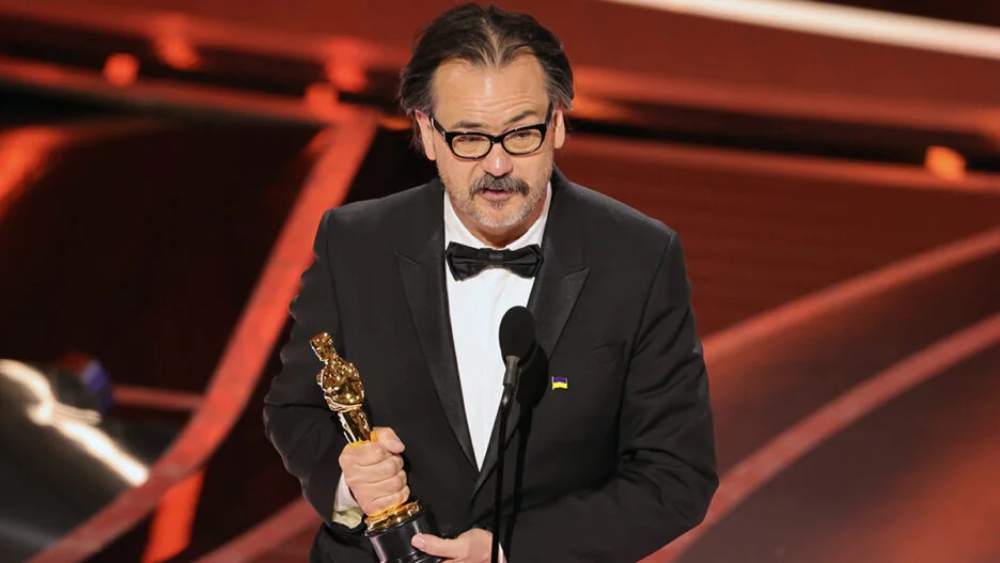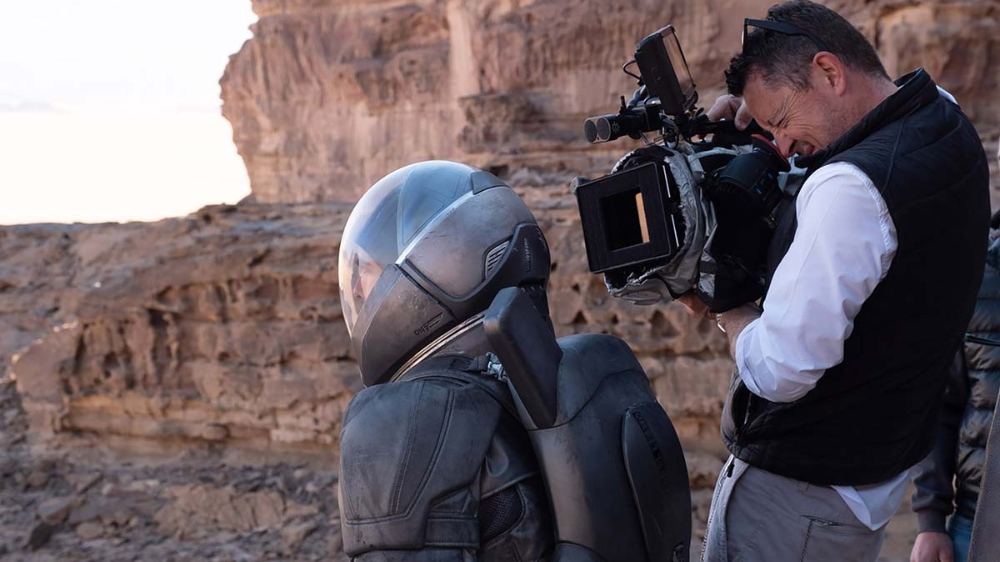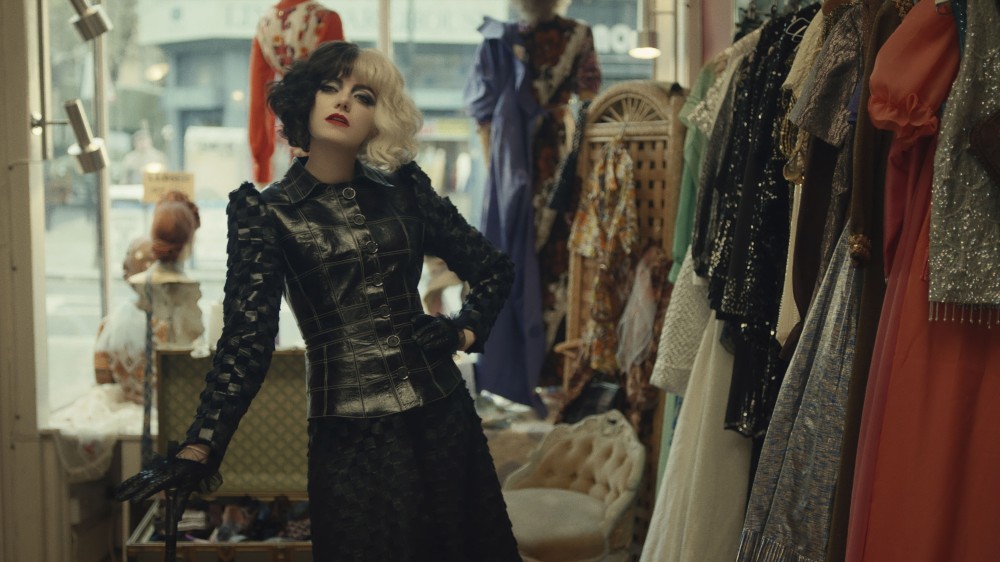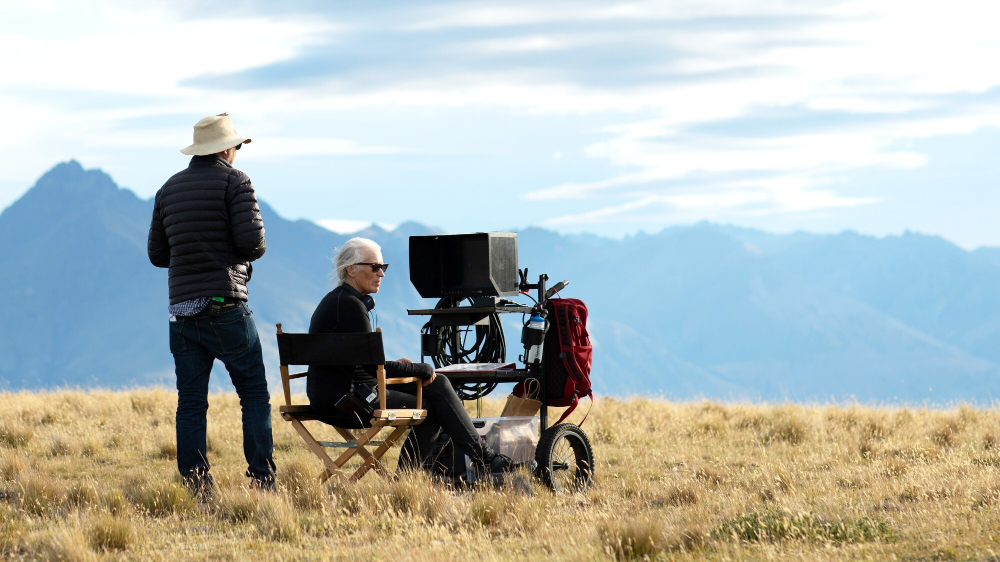
And in the end, even with mixing in an open-handed slap to a presenter, the Oscars still just barely moved the needle on viewership, according to preliminary overnight ratings.
Did more people watch than last year? Well, yes. Are fewer people still watching the Oscars than ever before? Well, yes.
The “theme” of the show this year was, ostensibly, “Movie Lovers’ Unite!” While it’s unclear why the Oscars need a “theme” outside of honoring cinematic arts, the telecast, as in most years, strove instead to be a mash-up of The Ed Sullivan Show suffused with the kind of edginess some felt Comedy Central had in the 2000s.
And if you were a movie lover interested in the eight non-live categories, well, you were still treated to a three-and-a-half-hour broadcast anyway, only with more dancing. Including, oddly, during the “In Memoriam” tribute. And of course, there were jokes throughout. And shtick. And for good measure, the aforementioned lone fisticuff.
But if you were a “Movie Lover!” who wondered why there were honorary Oscars given to the likes of Elaine May, Danny Glover, and Liv Ullmann (Samuel L. Jackson got one too, and at least he was there), well, this broadcast wasn’t going to tell you anything about Ingmar Bergman, Mike Nichols, or films like A New Leaf or Places in the Heart after their names were given a perfunctory reading. That kind of stuff, after all, is for the other, older kind of “Movie Lover!”
As for “the incident,” one thing not usually mentioned is that Smith himself started laughing at Rock’s admittedly cheap shot joke about Pinkett Smith’s autoimmune condition, while she scowled. And then somewhere in the next few seconds Smith changed gears and strode onto the stage to make unintended Oscar history.
Backstage, a stunned silence settled in as we watched the monitors (which is how we see the front-of-house broadcast while awaiting the various winners to be escorted back for their Q&As), as it dawned on us — as with the rest of the viewership — that we weren’t watching a staged prank, but an actual eruption. Of course, since the feed wasn’t bleeped, Smith’s “keep my wife’s name out of your fuckin’ mouth!” follow-up made it clear.
And while many have correctly observed that this overshadowed Questlove’s win for his groundbreaking documentary Summer of Soul, which was true, it also distracted the press from interviewing Editor Joe Walker, who had won an Oscar for Dune during the pre-show and had just arrived backstage, where he found that no one had a question for him. Everyone was still too dazed by what happened onstage, and the room remained strangely quiet. I hastily raised my number placard (like an auction, we all use our Academy-provided numbers, instead of hands), to ask him about the sense of collaboration that all the craft winners for Dune — and there many — had talked about on the campaign trail, along with the collegial atmosphere of working with director Denis Villeneuve.
“Well you know, he replied, “we are all like a well-rehearsed band that plays together, and have played together many times. And, you know, the sound team and I worked together on Blade Runner 2049, obviously, and Hans Zimmer and I go back to… 1998 was the first time we worked together, on the last thing he did at the BBC… Denis is an amazing leader and an incredibly skilled and trusted director who comes with tremendous specificity, I would say. He comes along with such a plan that it is my joy to be able to, kind of, interpret what his plan was but also to say, ‘hey, have you ever thought of doing this?’ And he pays me the enormous compliment of sometimes loving what I do and it remaining in the film. So I love working with Denis and his team.”

I nodded my thanks and awaited the next question, thinking I’d gotten the ball rolling. But I hadn’t. Walker gazed around the room, gave a slight shrug, and was about to exit the dais when suddenly, he leaned back into the mic: “Does anybody want to ask me about what it is like, as an irony, that, as an editor, my speech was edited tonight? Anybody — nobody interested in that? Who wants that one? I will give it to 201. Thank you, my friend.”
Walker peered back at us, and randomly selected one of those held auction cards, as he assigned the question himself. “It went down well, I thought, the speech,” referring to what they’d aired from his own remarks. Though perhaps if he’d hit anyone, he would have been given more air time?
“And yet, I just saw it go out, and they cut the beginning and the middle and the end of it. And that’s an irony. We all stand together in the Academy with equal strength, and I feel strongly that that was a disservice to our eight categories that were not televised live. We understand the pressures on the Academy, financially, but also, I think we all stand together. The original statue of the Oscar has five reels. You have five circles that represent the five branches of the Academy as they started, and they are of equal size and strength. So, Mr. 201, thank you for your question that I answered for you.”
And with that, the front-of-house spell was broken, and questions for Walker started coming from both the room and via the monitors, where those in the virtual pressroom participated (and which opened up participation to a much wider geographical spread — a pandemic-era change the Academy will likely keep, as it has the rare benefit of actually adding to the proceedings).
Greig Fraser, ASC ACS, who pulled off the unicorn-like stunt of being a below-the-liner who actually got to accept his award live, came back to echo — or presage — Walker’s comments as well. “This is the most talented bunch of collaborators I’ve ever worked with. And, you know, every single time I get together with these people, I’m always at the back of the room looking at them going ‘I am so honored and humbled and proud to be in the same room with these people.’ I mean, (production designer) Patrice [Vermette]’s work. I mean, I don’t know if everyone’s seen Patrice’s work [with] Denis on Arrival, but it’s insanely amazing. And to be part of that team… and Joe’s work with Denis is amazing. And to be inserted into that, I feel very humbled. I can’t think of a better word.”
Vermette had also won earlier that night in the off-camera segment the Academy called “Golden Hour” (yes, actually!) and Fraser said, “I mean, listen, I will say this, that 45 minutes that we did that was so much fun. And do you know why it is fun? Because it was a bit more informal. But it is tricky, you know. And I don’t mean we balance economics with the award shows, but films are made by, you know, the sound recorders, by visual effects supervisors, by the editors, by the production designers. That’s how films are made. And it seems odd to have some random relegation. Everybody in this crowd realizes and understands why this happens. Like, we’re not silly. And we understand the economics. But at the same time, it is up to us, I think to change the economics, change the fact that, you know, we want to encourage kids who are watching these awards to go, ‘You know what, I’m not an actor, I’m not a director, I’m not a producer, but I want to be a makeup artist.’ It’s a little short-sighted. I get it. But I just want my particular collaborators — particularly, production design, editing, makeup and hair, you know, to be equally rewarded for this — for the job they do.”

It was as eloquent a summation of the situation as we would get that evening. Indeed, later Vermette would come backstage and talk about being a kid in Montreal, watching the Oscar broadcast with his family, and never dreaming he’d be up on that stage winning an award of his own (or in this instance, shared with set decorator Zsuzsanna Sipos, who held the statue while Vermette sipped champagne).
And so it went, to paraphrase the late Kurt Vonnegut. Bewilderment at “Golden Hour,” though little outright condemnation, while the broadcast still remained too long.
Almost lost between the truncated acceptances and the onstage slap, were other aspects of the awards, especially as they affect the film biz in general, such as when Oscar-winning Cruella costumer Jenny Beavan was asked by a colleague about “costume designers sort of being cut out of merchandising deals and when it comes to the inspiration for your costumes and how they trickle down through places like Target and high-end places like Rag & Bone,” about which Beavan has spoken publicly before.
To which she replied, “I had a bit of interplay with Disney, with Alan Bergman, and Alan Horn, who I know and who are very kind, and I have kept it very, very polite. And I have been really waiting to see how I can help in the most positive way, I mean, with everything that’s going on.
I was shocked by what happened to me. I felt — I have never felt so disrespected and realized a huge amount of things that I’d never thought about, because I’d always just done the job and paddled home and, I don’t know, played with the cat, gone out to garden, whatever. And suddenly, I realized there was this wealth of inequality and — just walking over you. I mean, when we do a film… I didn’t think tonight was the right time to be political, with everything that’s going on in the world, and it’s far worse things happening in, obviously, Ukraine and so many things. It is bad, what’s happening. But yes. It has not gone away. I think they may have thought it’s gone away, but it hasn’t.”
There were surprisingly fewer mentions of Ukraine than one might’ve thought, but Beavan was right about the “so many things.”
Lost, too, were other moments, such as the triumph of the lovely, small CODA (and perhaps for later, some discussion of what it means now that Apple+ has vaulted over Netflix and Amazon with that elusive Best Picture Oscar), with writer/director Sian Heder talking about the ways her own boundary-less, loving immigrant family served as inspiration as she was adapting the original French film into her eventual English — and ASL — version. Or how she fought for essentially “unknown” actors like Troy Kotsur in the film.

Or Power of the Dog‘s Jane Campion saying backstage after her win for Best Director that “it is impossible to win an award like Best Directing without having an extraordinary team behind you,” and then thanked not only her cast, but pretty much every department head on the film — all by name.
It was all very gracious, but by then, everyone had been through Smith’s long acceptance speech-cum-half-assed apology, and watched the audience reward him with a standing ovation, no less, so the evening already felt irrevocably off the rails.
And no, Smith didn’t come backstage for Q&A. The real shock would’ve been if he had.
Meanwhile, just as this copy heads off, the Academy announced they “have officially started a formal review around the incident and will explore further action and consequences in accordance with our bylaws, standards of conduct and California law.”
In announcing this publicly, it practically obligates the Academy to levy a consequence of some kind. But then, consequences have been eluded in Hollywood before.
Smith appeared to want to head more of them off, following the Academy’s announcement with another attempt at an apology, released over Instagram. “I was out of line and I was wrong,” he said, copping to his outburst of “violence.”
The statement at least had the virtue of being far more direct than anything said on Oscar night.
Meanwhile, as Questlove later said backstage as he talked about the genesis of Summer of Soul and his approach to art in general, “the key to life is dreaming.”
That means we either have to hope for next year’s Oscars to be less nightmarish, or perhaps keep wondering if we’ll ever wake up from the timeline we’re all on now.
 Mark London Williams is a BTL alum who currently covers Hollywood, its contents and discontents, in his recurring “Across the Pond” dispatch for British Cinematographer magazine, contributes to other showbiz and production-minded sites, and musters out the occasional zombie, pandemic-themed, or demon-tinged book and script, causing an increased blurring in terms of what still feels like “fiction.”
Mark London Williams is a BTL alum who currently covers Hollywood, its contents and discontents, in his recurring “Across the Pond” dispatch for British Cinematographer magazine, contributes to other showbiz and production-minded sites, and musters out the occasional zombie, pandemic-themed, or demon-tinged book and script, causing an increased blurring in terms of what still feels like “fiction.”
Mark London Williams’Union Roundup column will appear every Tuesday. You can reach him to give him tips and feedback at [email protected]. He can also be found on Twitter @TricksterInk.





